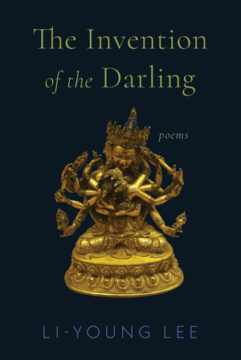Ed Simon at Poetry Magazine:
 Because the likelihood of Li Bai dying from simple infirmity in 762 isn’t as strange and beautiful as the traditional story of his demise—that he drowned in the Yangtze River while drunkenly trying to embrace the moon’s reflection—the apocryphal tale is to be preferred. The greatest of classical Chinese poets deserves a death commensurate with his wild verse. Dying because he wished to possess the moon has about it the necessary resonance of parable: this is what the mystic is willing to do to merge with the infinite. “The birds have vanished down the sky. / Now the last cloud drains away,” Li Bai writes in the first of two couplets of “Zazen on Ching-t’ing Mountain” as translated by Sam Hamill, concluding: “We sit together, the mountain and me, / until only the mountain remains.”
Because the likelihood of Li Bai dying from simple infirmity in 762 isn’t as strange and beautiful as the traditional story of his demise—that he drowned in the Yangtze River while drunkenly trying to embrace the moon’s reflection—the apocryphal tale is to be preferred. The greatest of classical Chinese poets deserves a death commensurate with his wild verse. Dying because he wished to possess the moon has about it the necessary resonance of parable: this is what the mystic is willing to do to merge with the infinite. “The birds have vanished down the sky. / Now the last cloud drains away,” Li Bai writes in the first of two couplets of “Zazen on Ching-t’ing Mountain” as translated by Sam Hamill, concluding: “We sit together, the mountain and me, / until only the mountain remains.”
This is startlingly religious verse. The disintegration of the soul, the extinguishing of the ego, the snuffing of the person is required so that one becomes a part of the cosmos’ warp and weft. It’s erotic verse as well, as only the truest of devotional poems can be, because it presupposes the desire to lose oneself in another, to twist into something greater.
more here.
